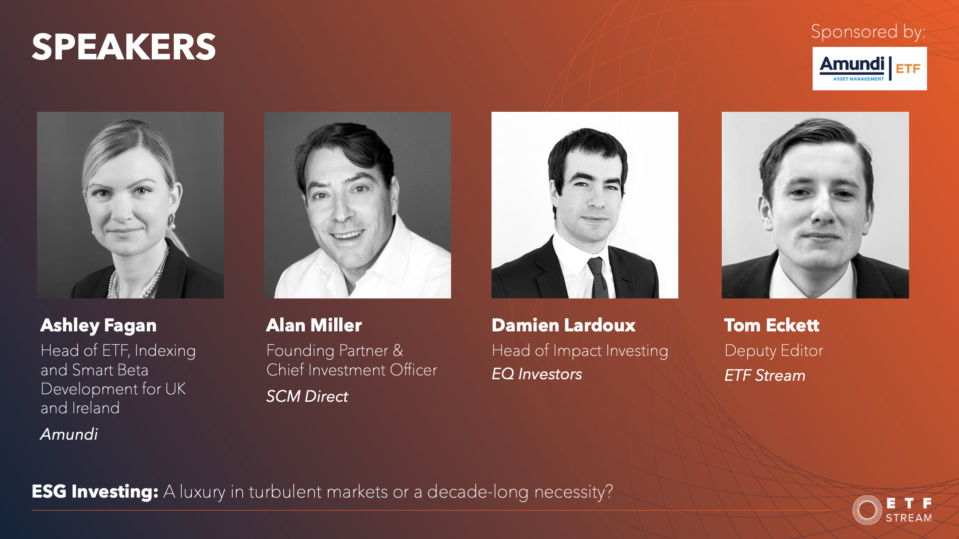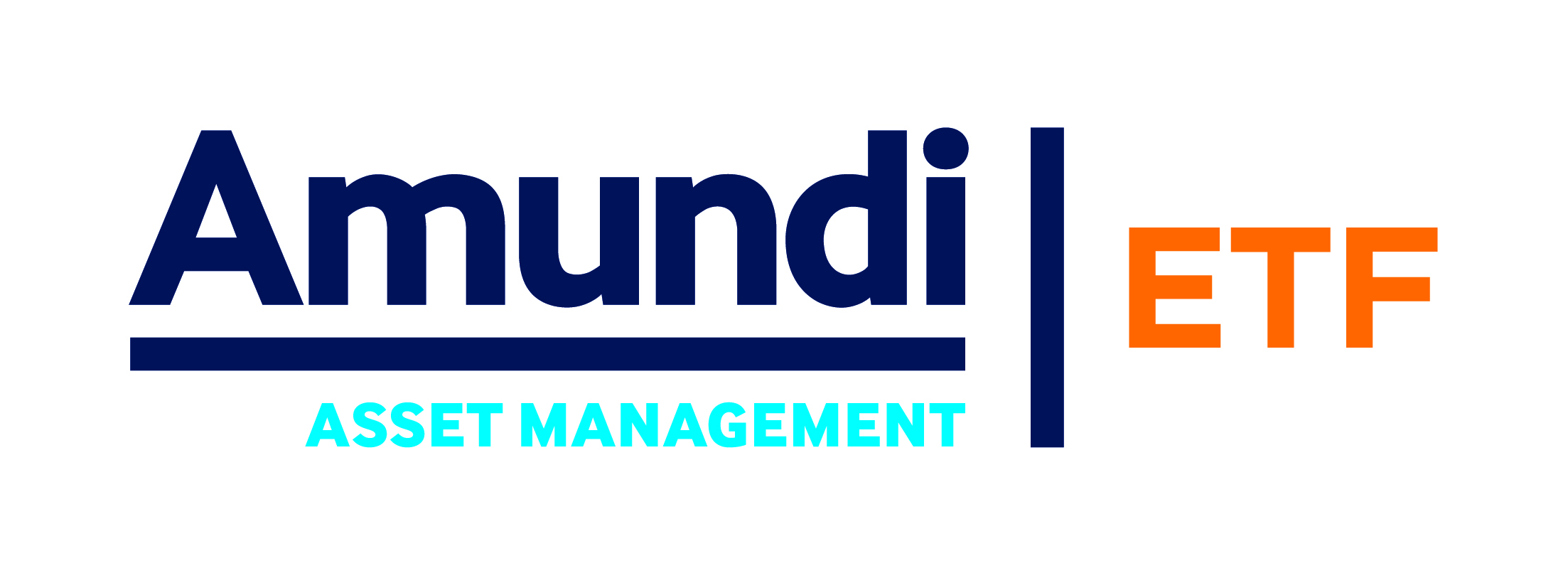The sixth edition of ETF Stream’s webinar series, ETF Ecosystem Unwrapped, explored one of the biggest trends in finance, environmental, social and governance (ESG) investing.
The conversation began with Ashley Fagan, global head of ETF, indexing and smart beta strategic clients & UK/Ireland development for Amundi, highlighting the three key drivers for the increase in ESG investing. This included investor awareness such that investors and stakeholders are demanding greater transparency over where the money is being invested, and as a result, they are opting for more sustainable strategies.
Second, regulators are providing more guidance, according to Fagan. “Since October 2019, UK pension funds have an explicit responsibility to integrate ESG issues into their investment approach.”
Finally, the performance of ESG factors can positively impact the risk and return for investors. Fagan highlighted the SRI, ESG leaders and ESG universal versions of the MSCI All Country World index have all outperformed the parent index over the year-to-date, three- and five-year periods.
Damien Lardoux, head of impact investing at EQ Investors, added ESG strategies will simply become “common sense investing”.
“You want to avoid investing in a poorly governed company as you can see some examples, such as BP and Volkswagen where their share prices can fall by 20% in a single day when the scandalous news becomes public,” Lardoux said.
One of the benefits of using index funds when investing in ESG strategies is the 100% transparency of the holdings, Alan Miller, founding partner and chief investment officer at SCM Direct, explained.
He said there is a large element of trust when typically investing with mutual funds because you can only see the top 10 holdings which typically account for just 45% of the portfolio.
“Everybody’s view on what is an ESG stock and what is not is different between investors and between ESG data providers with often conflicting ESG methodologies,” Miller added. “I am not saying one is better than the other, but they can definitely be significantly different.”
It is suggested that investors are broadly happy with these strategies, however, as ESG ETFs saw net positive flows in March just as the global markets were impacted by the coronavirus outbreak.
“ESG ETFs have shown a real resilience during the coronavirus crisis as it was the only category within equities that maintained positive flows,” Fagan said.
She highlighted some of the reasons behind the resilience including the defensiveness of ESG strategies as they overweight sectors such as healthcare and technology, which have performed well, and underweight sectors that have underperformed during the crisis, like energy and transport.
Furthermore, there is a possibility that investors are showing greater loyalty to their ESG investments which make them less sensitive to market declines.
One issue regarding the ESG ETF market in Europe is that there are too few products available, according to Lardoux.
He said: “The issue we have seen with the product providers is that they have been focusing on reducing fees rather than product innovation.”
SCM Direct: Unwrapping the ESG investing trend
Areas that Miller would like to see more products available include factor tilted ESG products such as value and growth as well as currency hedged and fixed income ESG ETFs.
He continued by explaining the importance of being transparent when constructing an ESG portfolio for investors.
“With our ESG portfolios, we publish the underlying holdings on a monthly basis so the clients can see in full what is inside the portfolio,” Miller added
“Everybody will have a different view on certain stocks, like Tesla for example, so the investor can know in advance and judge it before they invest.”





